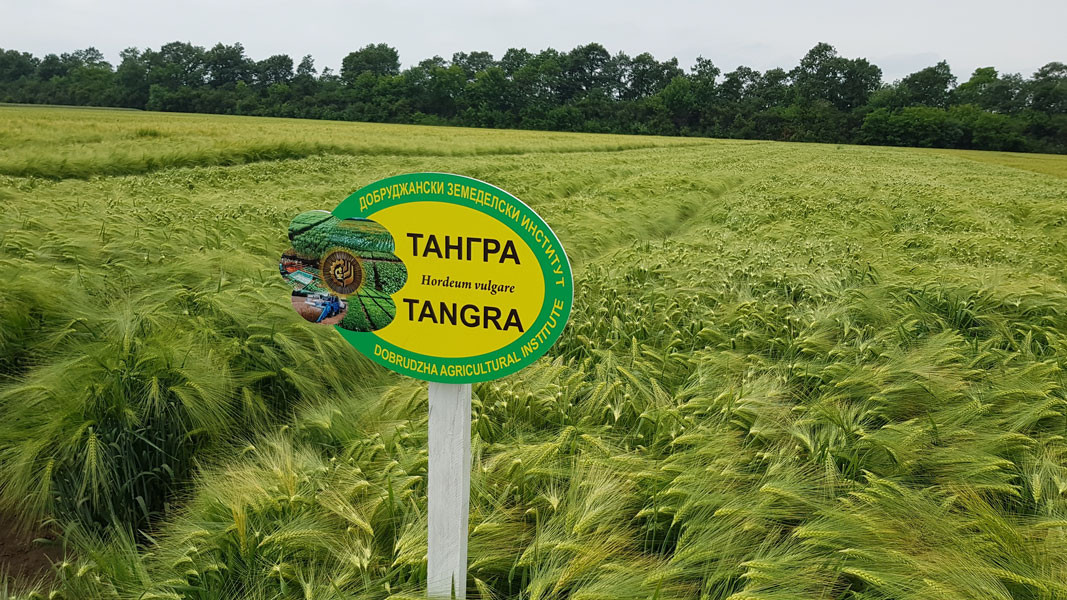Nearly 90% of the wheat, sunflower and corn sown in Bulgaria are imported hybrid varieties, although these are the three most important crops for Bulgaria’s agriculture. Wheat is the most widely grown crop in Bulgaria covering between 1 and 1.2 million hectares of land, mainly in Northern Bulgaria and Dobrudzha. Sunflower covers nearly 700,000 hectares of land and corn covers between 300,000 and 400,000 hectares.
Farmers in countries like Greece, Turkey, Italy and Spain are obliged to use a certain percentage of local grain varieties, whereas this is not the case in Bulgaria. This is due to the lack of a state policy aimed at protecting Bulgarian seed growers, Associate Professor Galin Georgiev, Head of the Sunflower Breeding Department at Dobrudzha Agricultural Institute in General Toshevo, said in an interview for the BNR-Varna:
“In terms of quality, our wheat varieties are as good as the foreign ones. The foreign varieties have higher yield potential, but in terms of other qualities, they are worse than our wheat varieties. That is why Turkish companies looking for high-quality wheat are our institute’s biggest clients. If you go to Turkey, you will be served bread and water first. However, the Bulgarian producers aim at higher yields and profits and give preference to imported hybrid wheat varieties.”

According to Associate Professor Georgiev, this trend has been observed in the past 10 years or so. The expert contends that Bulgaria should not reject its grain varieties, because they are locally selected and are adapted to local conditions. In addition, the foreign seed varieties pose risks to the soil ecosystem, because a number of diseases and pests come with the imported hybrids:
“There are many cases of mildew in sunflower this year. That is why sunflower production is expected to decrease by 10% to 15%. As last year, sunflower covers more than 700,000 hectares of land. Winter varieties were sown before the start of the war, but anyway we cannot do much, because we must keep certain proportions between cereals and oilseeds.”
Farmers are expecting good harvest of wheat, barley and triticale. In 2021, this country produced 7.12 million tons of wheat, or 52% more than in 2020. If crops grow well, there will be no shortage of flour in Bulgaria. Experts contend that there will be no shortage of cooking oil and triticale (a hybrid of wheat and rye).

Compiled by: Darina Grigorova
English version: Kostadin Atanasov
Exactly a week remains until the final decision on Bulgaria's entry into the eurozone – on July 8, the European Parliament is to vote on whether Bulgaria will become the 21st member of the eurozone and adopt the single European currency from January 1,..
At the start of the harvest season, Yanislav Yanchev, the Deputy Minister of Agriculture , predicted that the wheat would be of good quality. The country continues to maintain a stable position as a grain producer. The domestic market is secure and..
The base interest rate in Bulgaria is decreasing to 1.91% as of July 1, announced the Bulgarian National Bank. The base interest rate is dropping by 0.16% compared to the previous month, when it stood at 2.07%. Thus, the base interest rate will be..
In 2025, Bulgarian tourism maintains sustainable growth despite global challenges. According to analysts, a record number of foreign..
The base interest rate in Bulgaria is decreasing to 1.91% as of July 1, announced the Bulgarian National Bank. The base interest rate is dropping by..
At the start of the harvest season, Yanislav Yanchev, the Deputy Minister of Agriculture , predicted that the wheat would be of good quality. The country..

+359 2 9336 661
